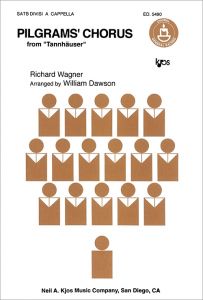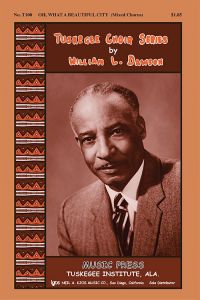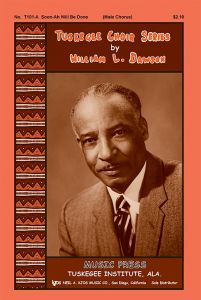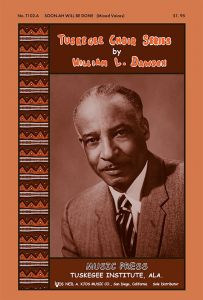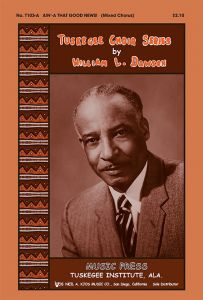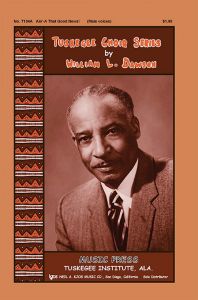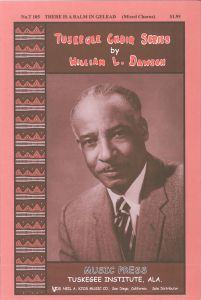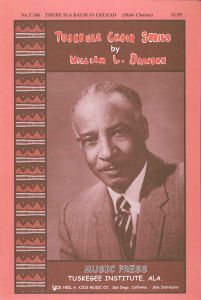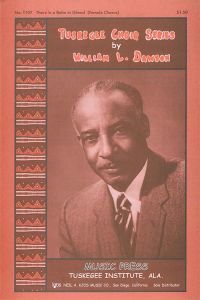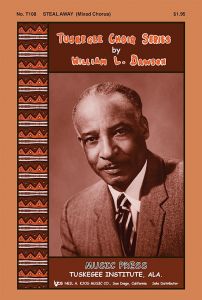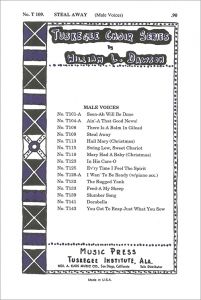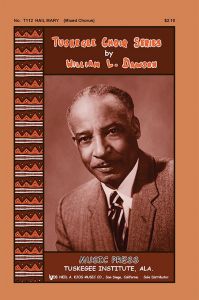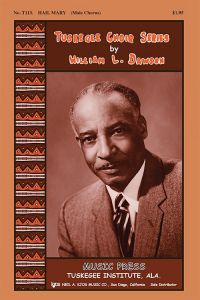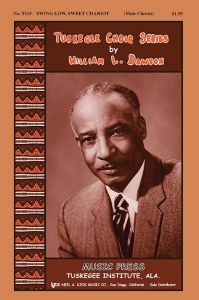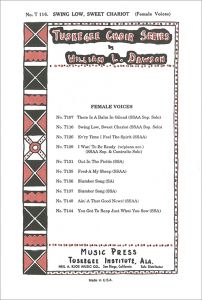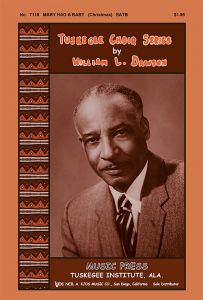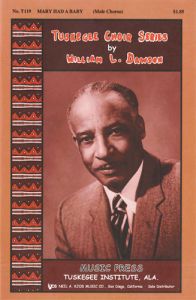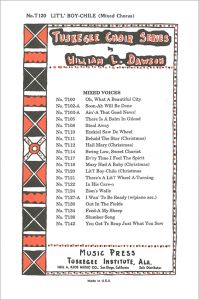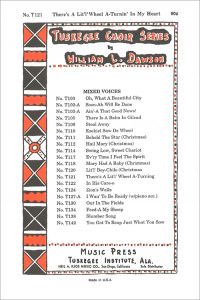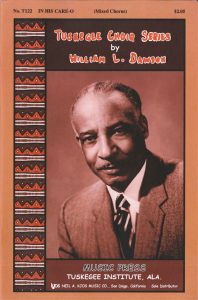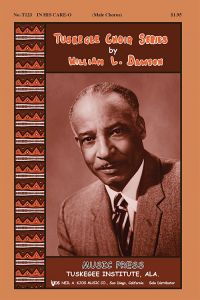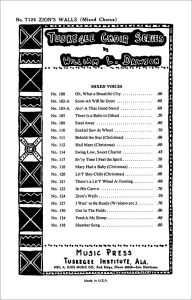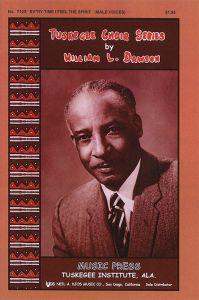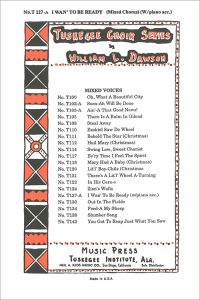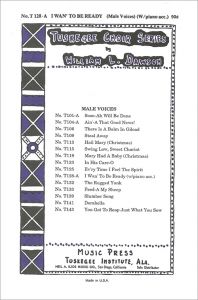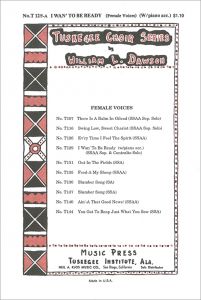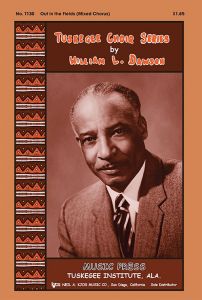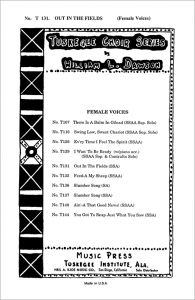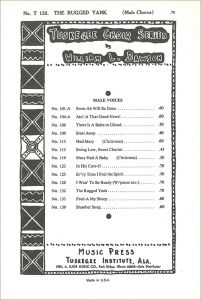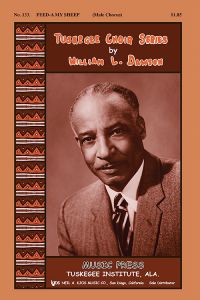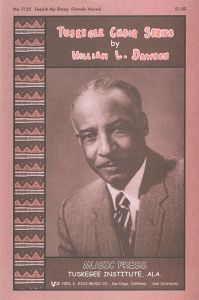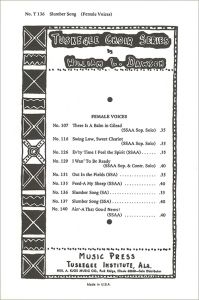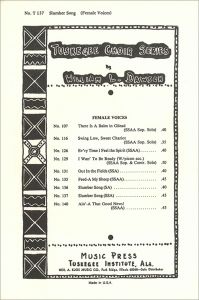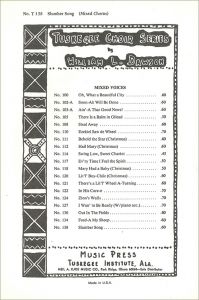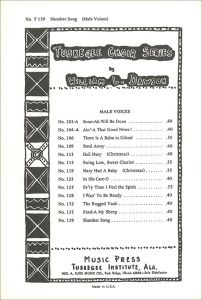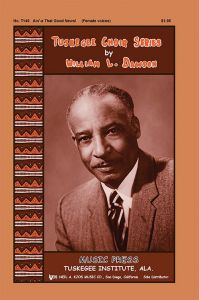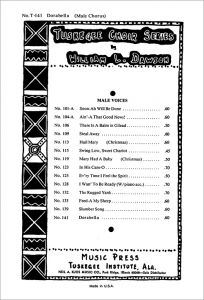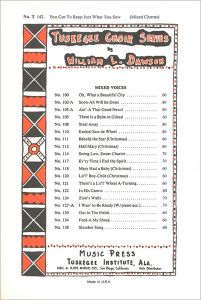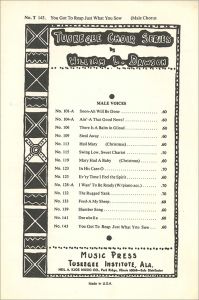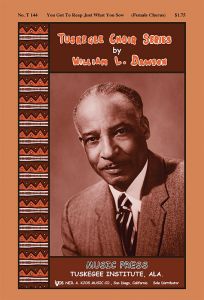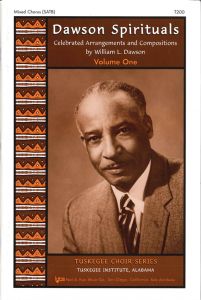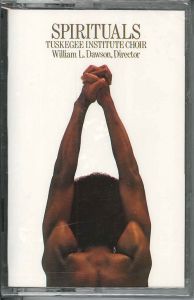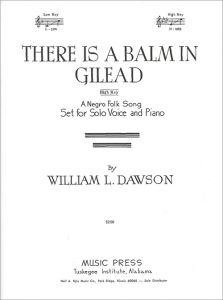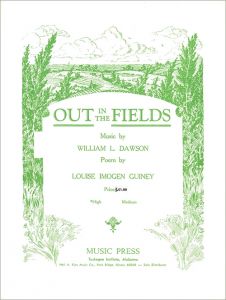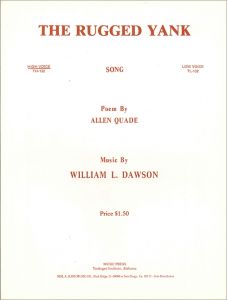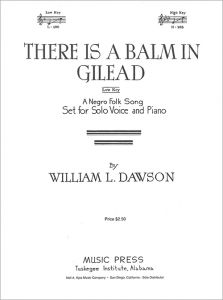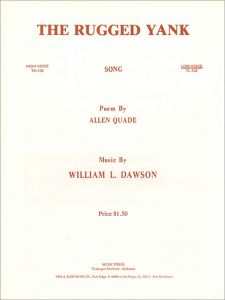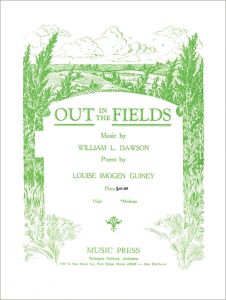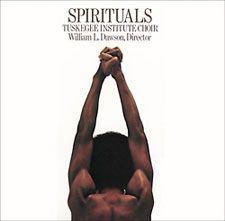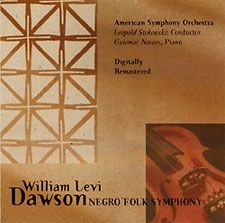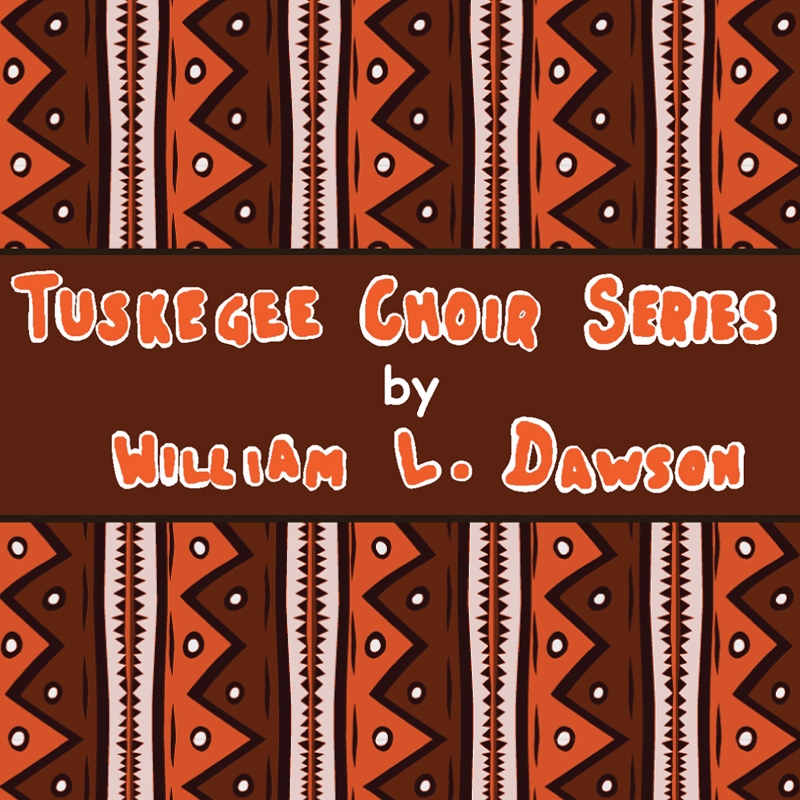William Dawson
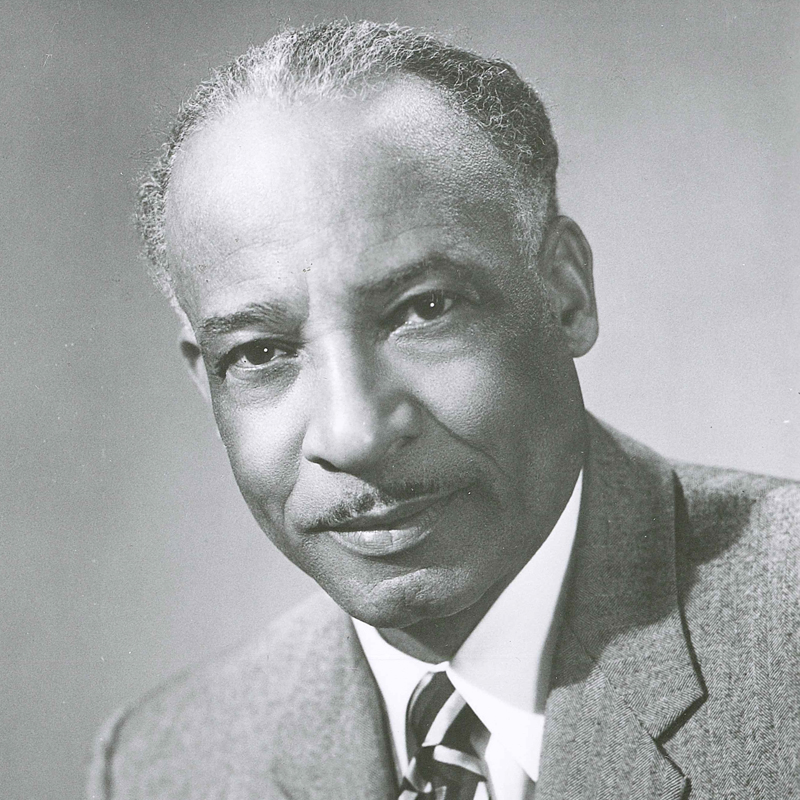
Known and revered the world over, William Levi Dawson was one of the greatest contributors to the art of American choral music. Deeply rooted in the flowering era of the American a cappella choir and African-American folk traditions, William Dawson fashioned the most widely performed selection of such original American choral music, the Tuskegee Choir Series, now published by the Neil A. Kjos Music Company.
Born in Anniston, Alabama in 1899, Dawson ran away from home at the age of 13 to attend the Tuskegee Institute in Alabama, the only school in the area at that time that would accept African-American students. He financed his education by working on the school’s farm, and was a member of Tuskegee’s band and orchestra.
After completing his Tuskegee education in 1921, Dawson became the Director of Music at Lincoln High School in Kansas City and for four years supervised instrumental music in the elementary schools and conducted school choirs. He continued his own musical studies at the Horner Institute of Fine Arts in Kansas City, where he graduated with honors in composition.
Dawson’s outstanding talent in composition won him a scholarship from the American Conservatory of Music in Chicago where, in 1927 he earned a Master of Music degree. His skill as a trombonist earned him an appointment as a first trombonist in the Chicago Civic Orchestra from 1926 through 1930. During this period, he became Bandmaster Designate for the 1933 World’s Fair by winning a composition contest conducted by the Chicago Daily News.
William Dawson received international acclaim with his most important orchestral work, “Negro Folk Symphony.” This symphony, the first work of its nature by an African-American composer incorporating authentic African-American folk melodies in a symphonic form, was premiered by the Philadelphia Orchestra under the direction of famed conductor Leopold Stokowski in November 1934. Mr. Stokowski noted, “ He has voiced the spirit of his people struggling in a new land; the ancient voice of Africa transferred to America.”
Dawson returned to the Tuskegee Institute where he developed and conducted the 100 member choir from 1931 to 1956 and began a touring program which established their world-wide reputation. By invitation, they performed for the opening of New York City’s Radio City Music Hall (’32-’33); at the White House for Presidents Hoover (’32) and Roosevelt (’33); at Carnegie Hall; atht he Metropolitan Opera House; and over regular radio broadcasts for NBC, CBS, and ABC (’37-’51). During this time he began to write extensively for vocal and choral performances. Among his many compositions are the world-famous arrangements of spirituals Ain’a That Good News, Ev’ry Time I Feel the Spirit, Ezekiel Saw De Wheel, Mary Had a Baby, and There is a Balm in Gilead.
Some of the accolades William Dawson received during his lifetime include an American Choral Directors Association award for “pioneering leadership, inspiration and service to the choral arts,” the Paul Heinecke Award from SESAC given “in honor and recognition of his talent, achievement and devotion to American music…whose spirit and purpose have transcended ethnic and international barriers,” induction into the Alabama Arts Hall of Fame, the creation of William Dawson Day in Philadelphia, and an honorary doctor of music degree from Ithaca College of Music in Ithaca, New York. During the ceremony, Ithaca College President, James J. Whalen said, “You, William Dawson, have spent a lifetime immersed in the folk music of your peoples…You have committed your life to bringing this music of the heart, this music of the soul, to the young of all races, so that their faith and their hopes will grow, so that their ideas and dreams will flourish.”

